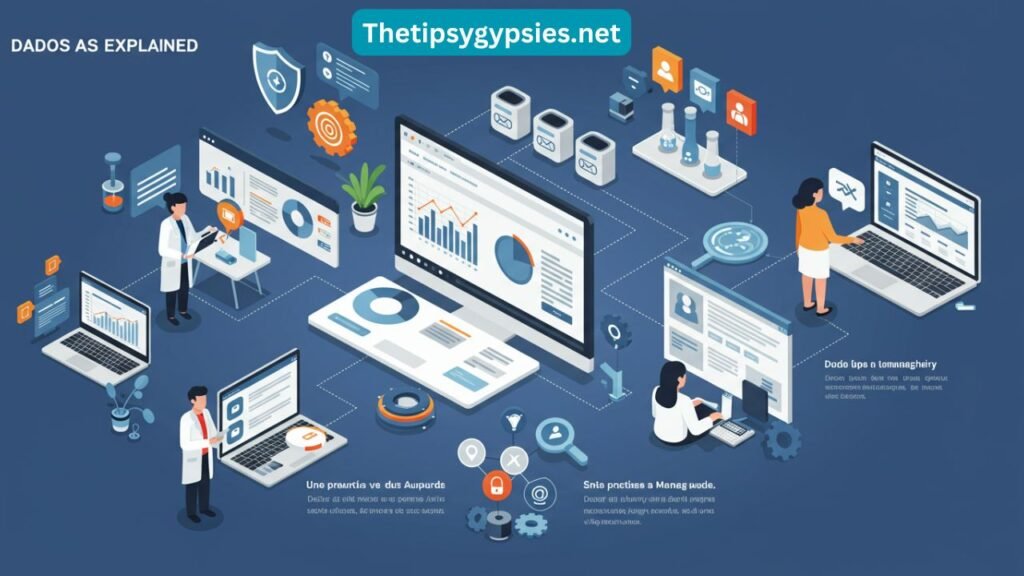Introduction: What is Dados AS?
dados AS, which refers to “data as a service.” With the increasing need for businesses to access real-time data without managing complex infrastructure, dados AS offers a scalable and efficient solution. In simple terms, dados AS is a model that delivers data on demand through cloud-based systems.
This article explores the fundamentals of dados AS, its key features, advantages, applications, and the challenges businesses may face when adopting this model.
Understanding Dados AS in the Digital Era
The phrase dados AS combines the Portuguese word dados, meaning data, with the widely used acronym AS, which stands for “as a service.” Essentially, dados AS allows organizations to utilize data resources via the cloud in the same way they might use software (SaaS) or infrastructure (IaaS).
Instead of storing and processing data in-house, companies can now subscribe to data services that offer access to structured, real-time, and valuable datasets—without investing in heavy infrastructure or data engineering teams.
How Dados AS Works: A Simplified Overview
Dados AS operates through a cloud-based model that connects users to data via secure APIs, dashboards, or analytics tools. Here’s a breakdown of how the system typically functions:
Data Collection: Information is gathered from diverse sources such as apps, IoT devices, sensors, websites, and databases.
Processing & Storage: The raw data is cleaned, validated, and stored in the cloud by the service provider.
Data Access: Users can access this data through APIs or platforms for analysis, integration, or application development.
Real-Time Updates: Dados AS supports dynamic updates, ensuring that the data is always current and reliable.
Benefits of Using Dados AS
Adopting a dados AS model presents several benefits for organizations across industries. Here are some of the top advantages:
1. Faster Decision-Making
With real-time data delivery, businesses can respond swiftly to market changes, customer behavior, and internal operations.
2. Cost-Effective Data Management
Rather than building expensive on-premise systems, dados AS provides an affordable, subscription-based solution that reduces IT overhead.
3. Scalable Infrastructure
Whether you’re a startup or a multinational company, dados AS scales with your data requirements. You can increase or decrease your data usage as needed.
4. Improved Data Accessibility
Dados makes data accessible from any location and device, enabling remote teams and mobile apps to function seamlessly.
5. Enhanced Security and Compliance
Top-tier dados providers offer encryption, access controls, and adherence to international data protection standards, including GDPR and CCPA.
Real-World Applications of Dados AS
The impact of dados is evident across multiple sectors. Below are some common use cases:
Marketing & Advertising
Marketing teams use dados to monitor customer trends, campaign performance, and engagement metrics in real time.
Healthcare Systems
Hospitals leverage dados AS to manage electronic health records (EHR), monitor patient vitals remotely, and support telemedicine platforms.
Financial Services
Banks and fintech companies utilize dados AS for fraud detection, credit scoring, and customer risk analysis.
Supply Chain and Logistics
From inventory tracking to delivery optimization, dados AS supports real-time supply chain insights that enhance productivity and reduce delays.
Key Features That Make Dados AS Stand Out
Dados is not just about delivering data it’s about doing it efficiently, securely, and intelligently. Key features include:
Cloud-Native Architecture
Built to function in a cloud environment, dados AS eliminates the need for physical data servers.Data Aggregation
It pulls data from multiple channels and unifies it into a standardized format.Customization Options
Many platforms allow users to filter, transform, and model data as per their specific business needs.Integration Ready
Dados AS works seamlessly with CRMs, ERPs, analytics tools, and custom applications.
Challenges of Implementing Dados AS
Although dados AS provides significant value, it’s important to be aware of its limitations:
1. Integration Complexity
Integrating dados AS with legacy systems can be technically challenging and may require custom solutions.
2. Vendor Dependency
Relying on a third-party data provider could lead to long-term dependency, especially if switching costs are high.
3. Latency Issues
For some high-frequency operations, latency in cloud data delivery can be a concern if the infrastructure isn’t optimized.
4. Data Privacy Concerns
Sharing data with external services introduces risks related to privacy and compliance if not properly managed.
Best Practices for Adopting Dados AS
To ensure successful implementation, businesses should consider the following best practices:
Start with Clear Goals: Identify the exact problems you want AS to solve before selecting a provider.
Evaluate Providers Carefully: Choose vendors with strong reputations, compliance certifications, and robust APIs.
Focus on Data Governance: Establish clear policies for data access, usage, and security within your organization.
Monitor and Audit: Continuously track performance and ensure your data remains accurate, secure, and relevant.
Future of Dados AS in Business and Technology
As data becomes the backbone of digital operations, the role of will only expand. With advancements in AI, machine learning, and predictive analytics, dados AS is expected to evolve from basic data delivery to intelligent, automated insights.
In the near future, businesses will rely on dados AS not just for data access, but also for decision automation, customer personalization, and intelligent process optimization.
Conclusion
Its represents a powerful shift in how organizations approach data management. By offering real-time access to clean, secure, and scalable data through cloud services, it empowers companies to innovate faster and operate smarter. Whether you’re a tech startup, healthcare provider, or financial institution, integrating into your digital strategy could be a game-changer.






